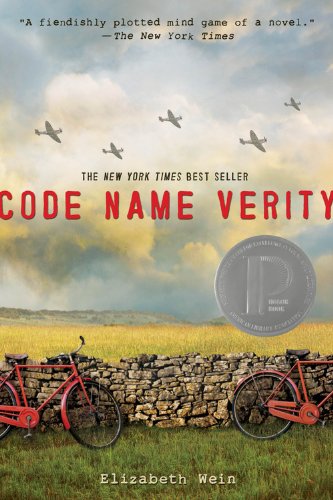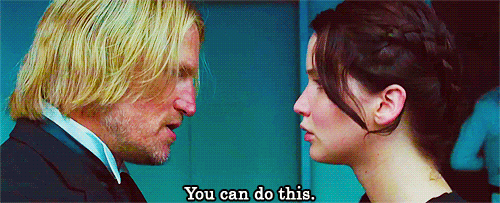This is something I have been thinking about for a long, long time.
It's been in the back of my mind a lot, but as you all probably know, two months ago, Veronica Roth's
Allegiant, the third book to the
Divergent series, came out.
And...there was a
lot of backlash.
Author Samantha Shannon brought it up on Twitter a little bit afterwards, asking thought-provoking questions such about endings and society's expectations of how stories end, especially one with such hype and acclaim as that of the
Divergent trilogy.
So I know I am quite late to put together my thoughts, but I wanted to take things into consideration when the storm had quieted, a little. This isn't a review of
Allegiant. It's an blog rant, I suppose, on the relationship between the author and the reader, between doing the story justice and doing the readers justice--they usually go hand in hand, but what if they clash? And when they clash, what happens?
There will, however, be spoilers. I think a lot of you have read this book already, but just in case--a disclaimer.
*SPOILERS*
Okay.
So.
At the end of the series, at the end of
Allegiant, the main character, Tris Prior, dies.
This is a very unusual decision for the author to carry out. Some considered it even egregious, and the book was slammed by readers almost based on the ending alone.
Now, I know that some readers did find faults with the story, with character development and with the writing, and offered a harsh, but fair critique. I respect that and understand that. Despite everything, we do need negative critics in this world. However, some readers hated the book and the author solely because she did not deliver a happy ending on a silver platter with dancing fawns. There were vicious insults and physical threats involved.
Bookverse, we need to talk about that.
I realize that readers are very important to an author. In today's world especially, when social media is so intertwined with the publishing industry, readers have more power than ever. Readers are not regarded as a passive species anymore, but as an active, dynamic, presence, and through Facebook, Twitter, and blogs and various other social platforms, the author is so accessible to the readers--they interact with us and prompt us and value our feedback. Readers have power over the author, and rightly so, because we are the ones who buy their art, so we must have a say. We shape the audience and the general populace. Sometimes, many times, authors are pressured to change stories to adapt to the mainstream tastes--sometimes even against their own will.
But in the end, we are just that--readers. We are not the author, and though we are fully entitled to enjoy or dislike a book of our own free will, we have absolutely no right to directly interfere with the author's purpose, or the story to get a version that we want, and we cannot presume that we have such a right.
Because in the end, even before the readers, the authors owe themselves to the story.
STORY COMES FIRST.
I know that once, Veronica Roth wasn't a smash-hit New York Times bestselling author with a rockstar celebrity status in the publishing world. Once upon a time, Veronica Roth was a college student who sat alone in her dorm room and wrote the novel of her heart. Ages before any of you guys ever caught a glimpse of
Divergent, Veronica wrote the book, and in that moment, the story was hers. It was hers to tell. The story, the characters' fates--it all belonged to her.
And people--she did it right. In the end, I believe she did the story justice.
Because the world of
Divergent wasn't like a scary movie set. It was brutal and broken and dark, through and through. In a world that seethed with danger and violence and tragedy--was it not realistic that even the main character could possibly die? I admire the courage Veronica took to stick to the guts of the world, to make the circumstances devastating and real and--
dystopian. It's not a suspenseful bedtime story where you're taken through some frightening twists but all's well in the end. There are consequences. And there is death.
Some may argue that Veronica crossed the line, that she killed off the main character to create a gut-wrenching scenario or to add shock value--but she didn't. She clearly had the series planned out, and she explains it so, so well
here. There was a clear character arc, and death was a vital part of it. If it was an illogical, brash ending, I would have joined in on the protests--but it wasn't.
And to me--the ending felt
right. I'm not one of those people who crave melodrama. Sure, I bawled my eyes out. Sure, maybe I was angry, a little bitter about the ending. But the feeling didn't last long, through, because in my heart of hearts, I knew that was the only ending that would fit the story and the world she created.
So back to readers, and authors. One thing many wise readers understand (and it's still something I'm struggling to grasp) is that authors are artists, and they contribute art to the world that is sometimes very difficult to understand. We, as the readers and consumers, are the judges and critics and admirers. But there is a fine balance between the reader's rights and the author's rights; the authors feed us wisdom and emotions and ideas, while we make it possible for them to carry on their work.
But we can't touch the art itself. We can't demand for the author to rewrite the ending and publish it. In the end, we must respect that balance, in order for truly good art to be made.
**
So this post was actually quite emotional to write...any comments? Thoughts? Please feel free to share.





.JPG)


.gif)
.JPG)